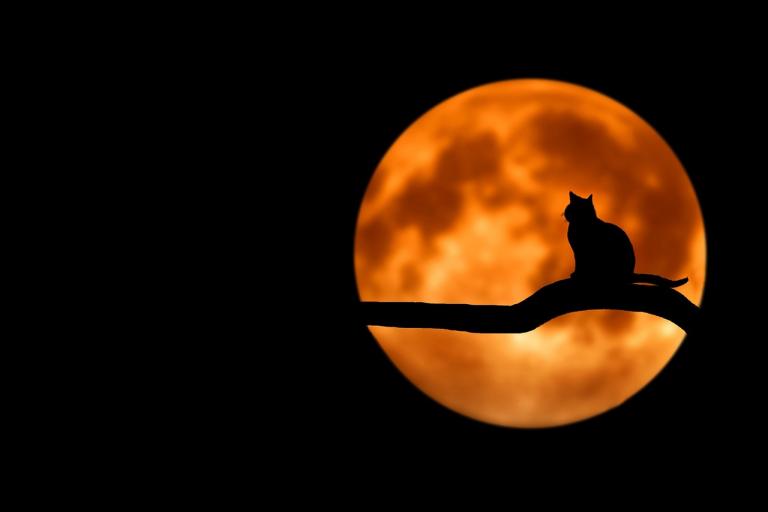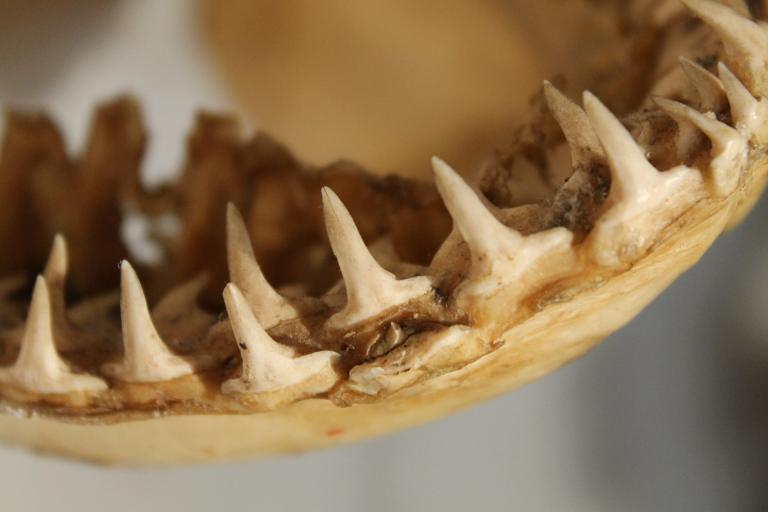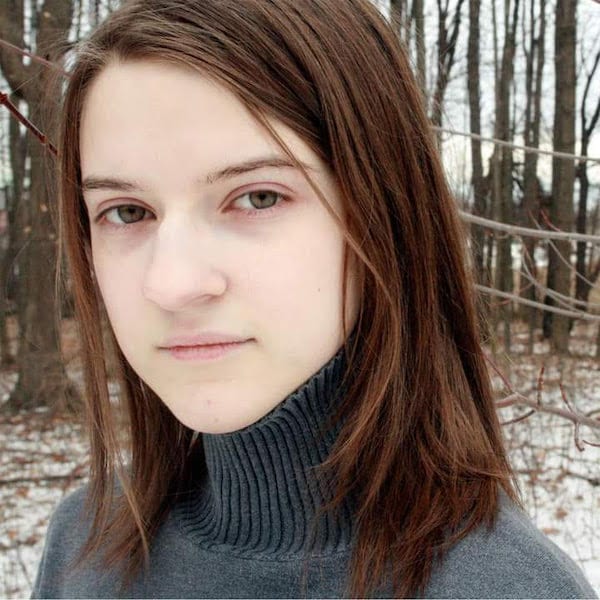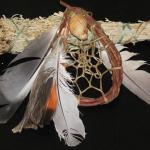Let us speak of love.
Here is a story I have told a hundred times and in a hundred ways, which I shall tell a hundred more:
There was a (girl)(boy)(creature)(dream). One night, (it) looked up, and saw something mysterious — a light in the sky, far away, pale, hungry with loneliness, fading and filling. (It) bloomed with empathy and compassion, and wished (it) could touch that distant sorrowful thing, and know the mysteries, and make a place in (its) ribcage where that light could live.

One night, the moon looked down from the sky, and saw a tiny something. So small, so distant, that the moon could only imagine a shape.
(Sometimes, the moon came down from the sky, and revealed his teeth. Sometimes, the moon returned to the same place each night, to watch over that speck of something so far away. Sometimes, the moon loved (it). Sometimes, the moon did not know what love was.)
One night, the moon looked down from the sky, and there was nothing there. (Entropy comes for all things.)
This is a story that I tell myself, in a hundred variations, because there is something in it that I cannot describe. There is light, and teeth, and smallness, and distance, and impermanence — and there is, in one or both or in the dream between them, a thing I understand as love.
I was raised for a time in evangelical Christianity, and there I was occasionally informed of a particular idea: that each person contains within themselves a “god-shaped hole”, a craving for divinity, which could only be fulfilled (so I was told) by the acceptance of the Christian god. But growing up, I never had that experience — if there was a void in me, god-shaped or otherwise, I could not find it, was not aware of it, and so certainly did not experience it as a flaw which needed repair.
Several times over the course of my childhood, swept up in the strange emotional group-think that seems unique to mobs and congregations, I declared myself renewed in my relationship to Christianity’s god — sometimes I even felt the whisper of a response, that numinous light-water flood that drowns a heart — and then hours later, when I was alone again, found that nothing had changed. I felt no differently than I had before, did not love or feel connected to or seem to need what I had just claimed devotion to. Eventually this contributed to my decision to leave that religion, and indeed religion in general; not really because I didn’t believe that there might be gods — although doubt, bred into me by centuries of society, will likely be ever-present — but because I didn’t feel any particular connection to the one I knew and it struck me as somehow rude to come into a god’s sacred place, mouth the appropriate words, and feel nothing.

When I was a teenager, I broke up with a girl I was dating because she loved me. Not because I didn’t want her to, necessarily, but because I didn’t feel the same degree of commitment and devotion for her, and that felt intrinsically unfair to me. It felt wrong to let her give love and receive only mild-to-moderate fondness in return. I couldn’t give her what she wanted, what she gave me, and I was reasonably certain that I never would. To take that gift and return to her only its pale facsimile would have been cruel, and though I am many things, I do strive not to be cruel. (I do not always succeed. But I strive.)
I do not always understand what people mean when they say they love someone. The words they use are too mild, the colors too pale. The love they describe to me has no teeth. To me, love is almost entirely teeth: it is a vicious, protective, dangerous thing. When the people I love are threatened the thing in me that wants to be cruel, the thing that wants to destroy whatever looks at it, that thing rises up in my ribcage, snarling, and threatens to eat the world. (And somewhere behind the teeth, carried safely in its throat, there is warmth and light and fond affection, pooling up like a sacred spring, like holy honey — but the teeth are first.) I suspect this does not look like love — it is not packaged cleanly, it is dangerous and violent, it does not always feel good — but it is what I understand as love: it is me, and my teeth, stalking my territory to keep out other monsters, so that the good things hidden inside it won’t be touched. Sometimes that piece of me, that feral thing which stalks between my lungs, wakes and tells me that it loves.
It does not happen often. There are people who have an extraordinary capacity for love, who can love easily and generously, but I am not one of them. Love, for me, is difficult and costly; it is rare, and sacred.

It is a world-eating thing. It is a monster, leashed. (We have spoken already of monsters.)
It has rattled around my ribs, gnawing on the bones and hissing its disapproval, as I debated with myself whether it was right, or useful, or fair to divide the gods of my tradition into A Group You Should Worship and A Group You Should Not.
(No, hisses the voice of teeth, they are all mine.)
In some views, Loki and his kin (some of his kin, I am interested to observe; not all) are the enemies, and should be at best ignored, if not denigrated.
(No, it howls, leave them alone, I love them, I’ll eat your heart and steal your breath.)
And the Jotun, those forces of uncontrollable nature, with all their bloody teeth — should they be the enemy?
(I am teeth, it snarls, and there is no enemy.)
The binding of Fenrir was accomplished with a betrayal — does this make Tyr less worthy of my devotion? Tyr was maimed by the Wolf — should I withhold my love from Fenrir, then?
(No, it snaps, I will lie, and I will bite, and both are mine.)
Odin took Loki’s children hostage, and recruits the dead for a fight he knows he will lose; Baldr’s fear drove Frigga to extraordinary lengths, and her hubris cost his life; Frey’s servant threatens and curses Gerda to force her to meet with and marry his master.
(I don’t care, I love them all. I love them, I love them, I love them.)
When I practice devotion — formal or informal, ritual or passing thought — I feel the clear and steady ringing of a bell inside my ribcage, the pull of something sacred. Resonance. Re-alignment. Right-making. Around it paces the teeth-and-light thing, the monster instinct, swallowing echoes and laughing like wild coyotes. Love is the attendant of sacredness.
My gods are flawed. They are divine and mortal, archetypal and complicated, and in many cases I disagree with the choices they have made, question the ideals they stand for. But I love them, marrow-deep, with all of my teeth, the way monsters do. I’m not sure when that happened, or how, or why. I still don’t feel the god-shaped hole, so my gods do not repair a flaw. They don’t need to, they shouldn’t — my gods are not building material for the house of my self.
They’re people. (They’re impossible shapes.) And I love them.
Marrow-deep.
With teeth.
(One night, I looked up, and saw the moon.)














